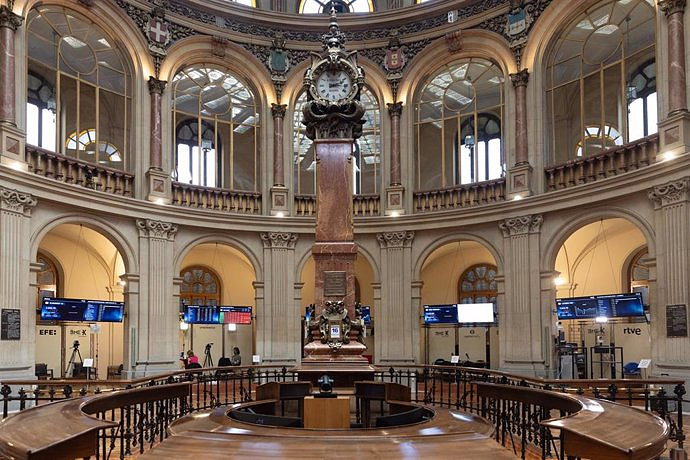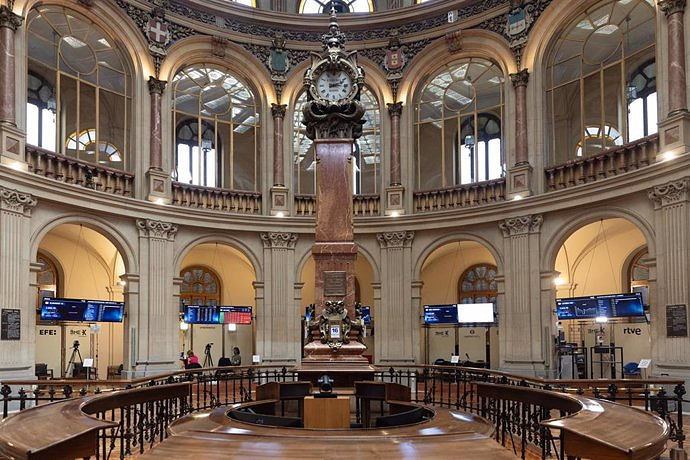Remember that the Cortes are not exempt from "subordination to the Constitution"
MADRID, 28 Dic. (EUROPA PRESS) -
The Constitutional Court (TC) agreed to urgently paralyze the parliamentary processing of the two amendments seeking to modify the election system of candidates for the court appointed by the General Council of the Judiciary (CGPJ) considering that its "responsibility "is" to limit the ability of the legislator to act when it exceeds the constitutional margins.
This is stated in the order that has been released this Wednesday, which includes the arguments for which the court agreed on December 19 to estimate the very precautionary measures that the PP claimed in its appeal against amendments 61 and 62 included in the bill that proposed repealing the crime of sedition.
The court argues that "the express will of the constituent" places him as the "ultimate guarantor of the constitutionally established balance of powers, thus including the possibility of limiting the legislator's ability to act when it exceeds the constitutional margins (...) in the exercise of its inalienable constitutional responsibility".
In line, the court recalls that "the centrality of the General Courts in our constitutional State does not mean that the exercise of their powers is exempt or released from subordination to the Constitution."
In this sense, it stresses that the Magna Carta "normatively presides over the actions of all public powers and, significantly, that of the one who assumes the representation of national sovereignty."
Under this premise, the TC agreed -6 votes against 5-- to estimate the very precautionary measures that the PP demanded in its appeal against amendments 61 and 62 -promoted by the PSOE and United We Can-- which were included in the bill for which it was proposed to repeal the crime of sedition.
It was the first time, in its more than 40-year history, that the Constitutional Order urgently suspended a parliamentary debate in the Cortes Generales. The Senate voted on the bill that repeals sedition, but did so without the amendments that the PP appealed.
The court concluded that the progress of the parliamentary processing of said amendments caused damage that was difficult to repair to the 'popular' legislators, who invoked article 23 of the Constitution, which includes the right to political participation of citizens through their representatives.
In this sense, the Constitutional Court assured that the precautionary measure adopted did not cause a serious disturbance to a constitutionally protected interest, nor to the fundamental rights or freedoms of third parties. In his opinion, the decision adopted complies with the "canon of proportionality".
The decision of the Plenary has had the individual votes of the five magistrates of the progressive wing who voted against it on December 19.

 Exploring Cardano: Inner Workings and Advantages of this Cryptocurrency
Exploring Cardano: Inner Workings and Advantages of this Cryptocurrency Seville.- Economy.- Innova.- STSA inaugurates its new painting and sealing hangar in San Pablo, for 18 million
Seville.- Economy.- Innova.- STSA inaugurates its new painting and sealing hangar in San Pablo, for 18 million Innova.- More than 300 volunteers join the Andalucía Compromiso Digital network in one month to facilitate access to ICT
Innova.- More than 300 volunteers join the Andalucía Compromiso Digital network in one month to facilitate access to ICT Innova.-AMP.- Ayesa acquires 51% of Sadiel, which will create new technological engineering products and expand markets
Innova.-AMP.- Ayesa acquires 51% of Sadiel, which will create new technological engineering products and expand markets STATEMENT: The final convention in Courmayeur closed the Coppa Delle Alpi 2024
STATEMENT: The final convention in Courmayeur closed the Coppa Delle Alpi 2024 STATEMENT: Rainbow Robotics participates in ICRA 2024 in Yokohama, Japan
STATEMENT: Rainbow Robotics participates in ICRA 2024 in Yokohama, Japan Study identifies new genetic form of Alzheimer's
Study identifies new genetic form of Alzheimer's Judge Juan Merchan fines Trump for contempt of court in 'Stormy Daniels' bribery case
Judge Juan Merchan fines Trump for contempt of court in 'Stormy Daniels' bribery case How Blockchain in being used to shape the future
How Blockchain in being used to shape the future Not just BTC and ETH: Here Are Some More Interesting Coins Worth Focusing on
Not just BTC and ETH: Here Are Some More Interesting Coins Worth Focusing on UMH researchers are working on a high-quality apricot crop that requires less irrigation water
UMH researchers are working on a high-quality apricot crop that requires less irrigation water The UPV develops an application to improve the quality of life of patients with glioblastoma
The UPV develops an application to improve the quality of life of patients with glioblastoma A sensor system obtains the fingerprint of essential oils and detects if they have been adulterated
A sensor system obtains the fingerprint of essential oils and detects if they have been adulterated Faraday UPV presents the 'Origin' rocket to exceed 10 km of flight: "It is the beginning of the journey to space"
Faraday UPV presents the 'Origin' rocket to exceed 10 km of flight: "It is the beginning of the journey to space" A million people demonstrate in France against Macron's pension reform
A million people demonstrate in France against Macron's pension reform Russia launches several missiles against "critical infrastructure" in the city of Zaporizhia
Russia launches several missiles against "critical infrastructure" in the city of Zaporizhia A "procession" remembers the dead of the Calabria shipwreck as bodies continue to wash up on the shore
A "procession" remembers the dead of the Calabria shipwreck as bodies continue to wash up on the shore Prison sentences handed down for three prominent Hong Kong pro-democracy activists
Prison sentences handed down for three prominent Hong Kong pro-democracy activists ETH continues to leave trading platforms, Ethereum balance on exchanges lowest in 3 years
ETH continues to leave trading platforms, Ethereum balance on exchanges lowest in 3 years Investors invest $450 million in Consensys, Ethereum incubator now valued at $7 billion
Investors invest $450 million in Consensys, Ethereum incubator now valued at $7 billion Alchemy Integrates Ethereum L2 Product Starknet to Enhance Web3 Scalability at a Price 100x Lower Than L1 Fees
Alchemy Integrates Ethereum L2 Product Starknet to Enhance Web3 Scalability at a Price 100x Lower Than L1 Fees Mining Report: Bitcoin's Electricity Consumption Declines by 25% in Q1 2022
Mining Report: Bitcoin's Electricity Consumption Declines by 25% in Q1 2022 Oil-to-Bitcoin Mining Firm Crusoe Energy Systems Raised $505 Million
Oil-to-Bitcoin Mining Firm Crusoe Energy Systems Raised $505 Million Microbt reveals the latest Bitcoin mining rigs -- Machines produce up to 126 TH/s with custom 5nm chip design
Microbt reveals the latest Bitcoin mining rigs -- Machines produce up to 126 TH/s with custom 5nm chip design Bitcoin's Mining Difficulty Hits a Lifetime High, With More Than 90% of BTC Supply Issued
Bitcoin's Mining Difficulty Hits a Lifetime High, With More Than 90% of BTC Supply Issued The Biggest Movers are Near, EOS, and RUNE during Friday's Selloff
The Biggest Movers are Near, EOS, and RUNE during Friday's Selloff Global Markets Spooked by a Hawkish Fed and Covid, Stocks and Crypto Gain After Musk Buys Twitter
Global Markets Spooked by a Hawkish Fed and Covid, Stocks and Crypto Gain After Musk Buys Twitter Bitso to offset carbon emissions from the Trading Platform's ERC20, ETH, and BTC Transactions
Bitso to offset carbon emissions from the Trading Platform's ERC20, ETH, and BTC Transactions Draftkings Announces 2022 College Hoops NFT Selection for March Madness
Draftkings Announces 2022 College Hoops NFT Selection for March Madness
























